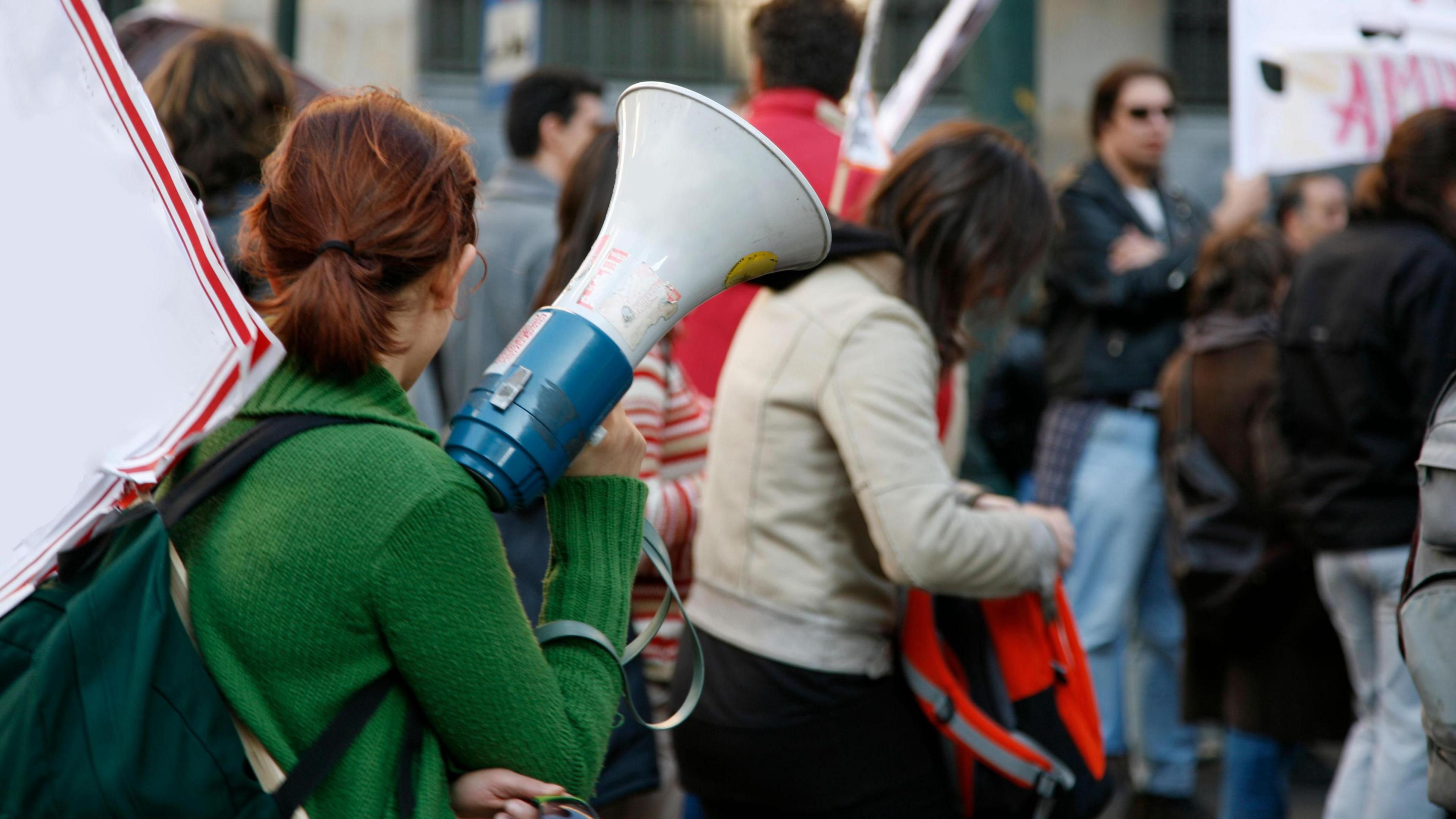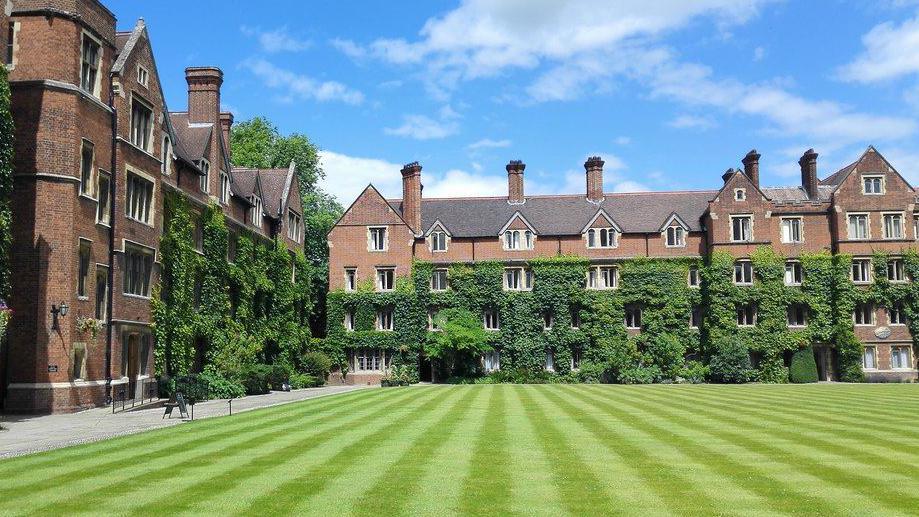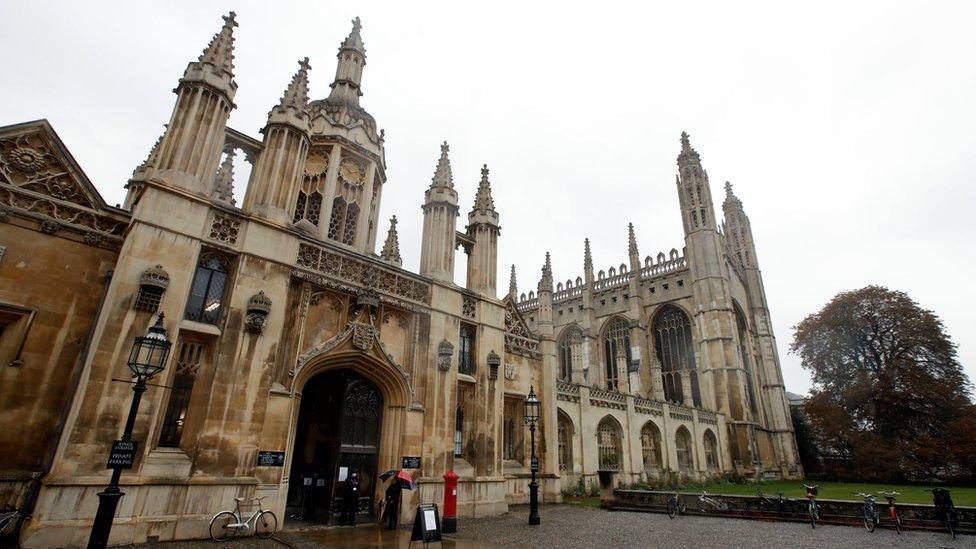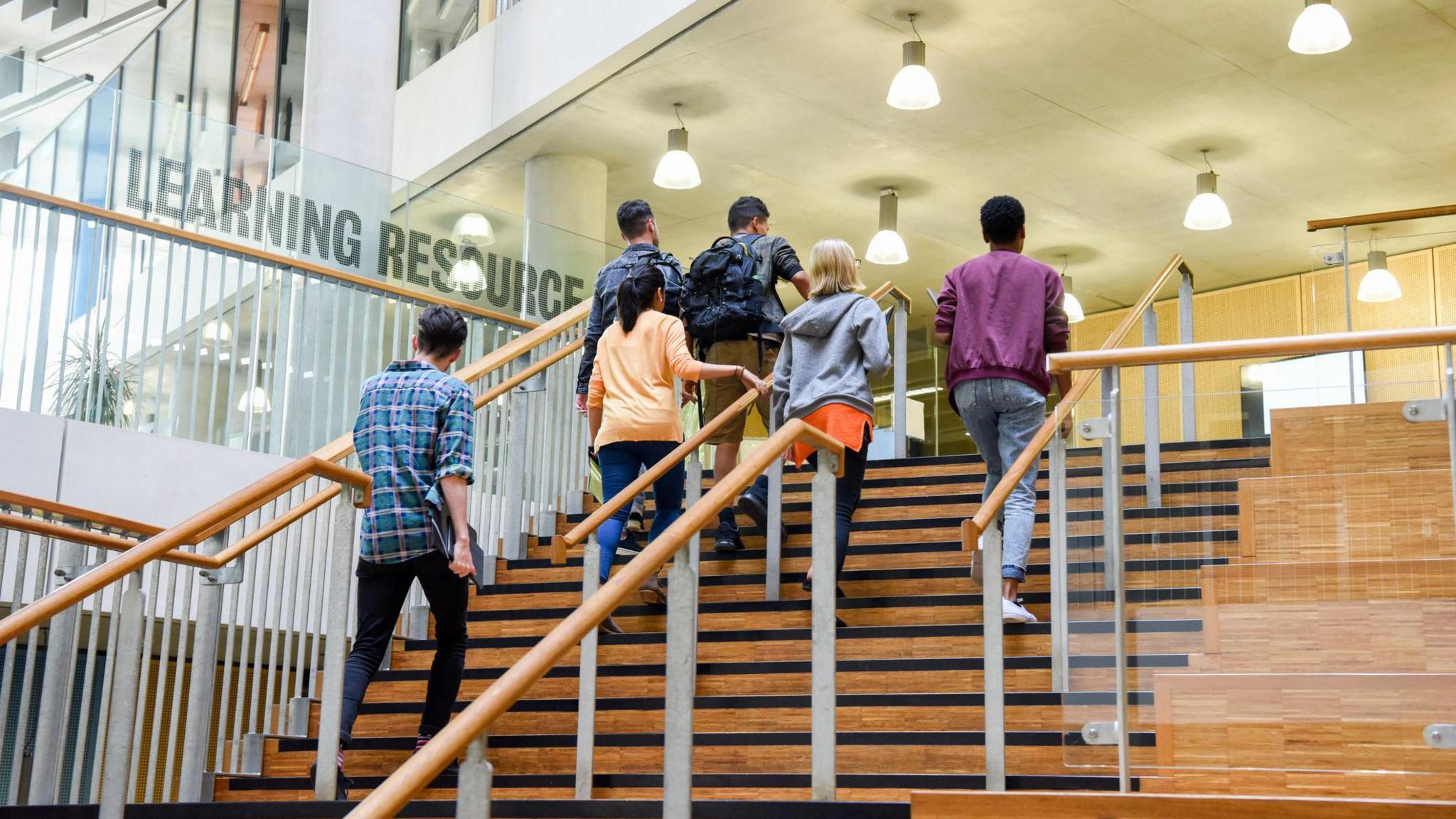University freedom of speech 'better than it was'

Roger Mosey believes students were "not wanting to offend each other"
- Published
Free speech was stifled at the University of Cambridge in recent years but has since "got better", according to a departing college master.
Roger Mosey, the master of Selwyn College, said: "For a period I think we were in rather a difficult spot when that freedom was not as strong as it should have been."
He was "delighted" former minister Lord Smith had been elected as the university's chancellor because he had campaigned on a platform of free speech and academic freedom.
The university has been approached for comment.
Mosey, who is the former head of BBC television news, said universities were supposed to be about free speech, free ideas and academic freedom.
He spoke to the BBC after writing about the "chilling" atmosphere felt by some academics in the Telegraph.
"One of the things I say to students when they come to Selwyn is they may hear views they may find upsetting, they may not agree with people, but that's part of being at a university - and if someone says something you disagree with, challenge them.
"I think that's what was difficult three, four or five years ago."
From this summer, a new law will place a stronger responsibility on universities in England to uphold freedom of speech and academic freedom.

Mosey says he also tells students they have a right to be themselves, but they cannot refuse to be challenged as society needs healthy debate
Mosey, who is standing down as Selwyn's master after 12 years, said: "My point is, you can both say, 'I'm in favour of free speech' and be in favour of trans rights or gender rights or racial rights or whatever.
"I think we got into this weird position where somehow free speech was seen as undermining people, whereas I think a debate strengthens you - it makes you better able to defend yourself if you can debate."
Debates within universities on such issues were not "really connected to the outside world", he added.
"If you talk to people in towns and cities and villages across the region, they're not having the debates that are happening in university," he said.
"[University freedom of speech] was bad about five years ago and it's got better now and I think it's got better because I think society's changed a bit - I think we're a little bit more relaxed now about some issues."
Get in touch
Do you have a story suggestion for Cambridgeshire?
Follow Cambridgeshire news on BBC Sounds, Facebook, external, Instagram, external and X, external.
- Published9 December 2020

- Published29 March
